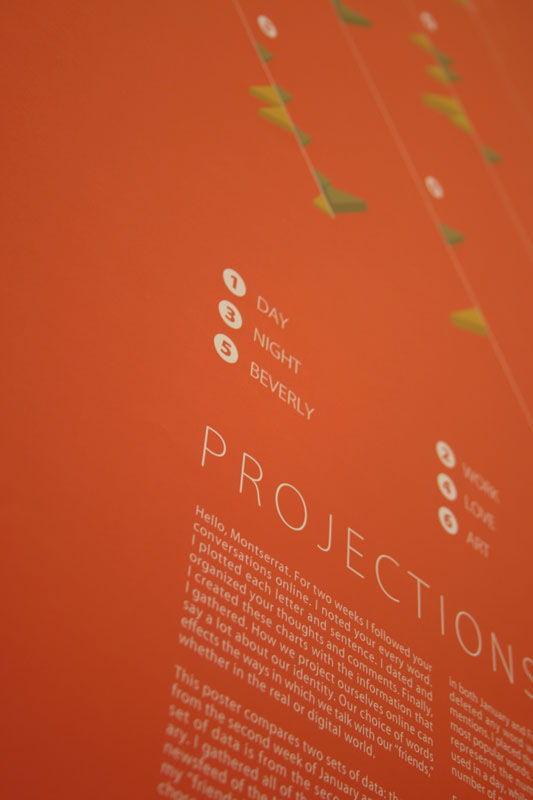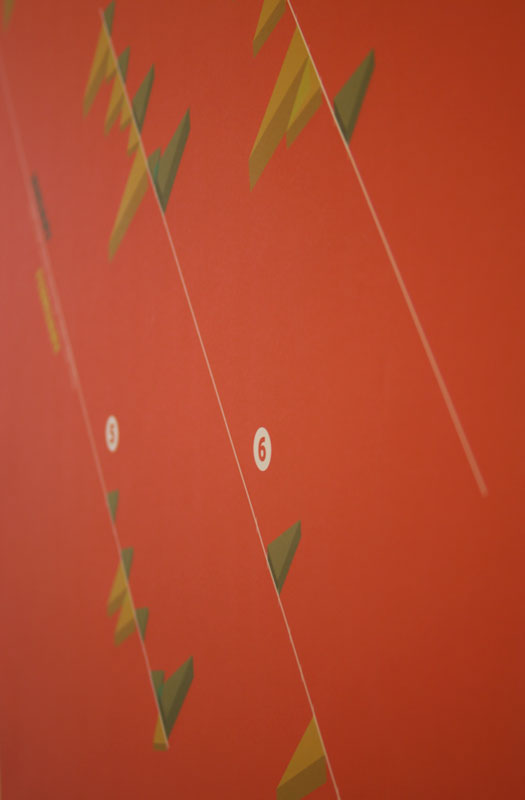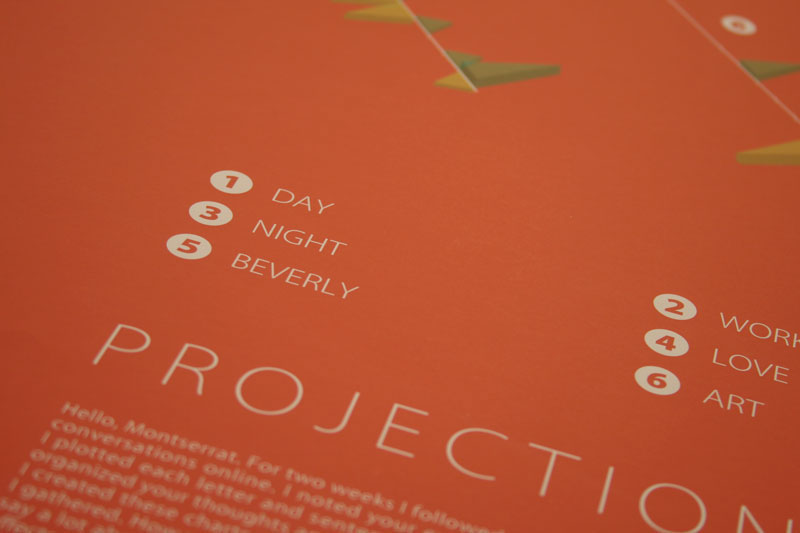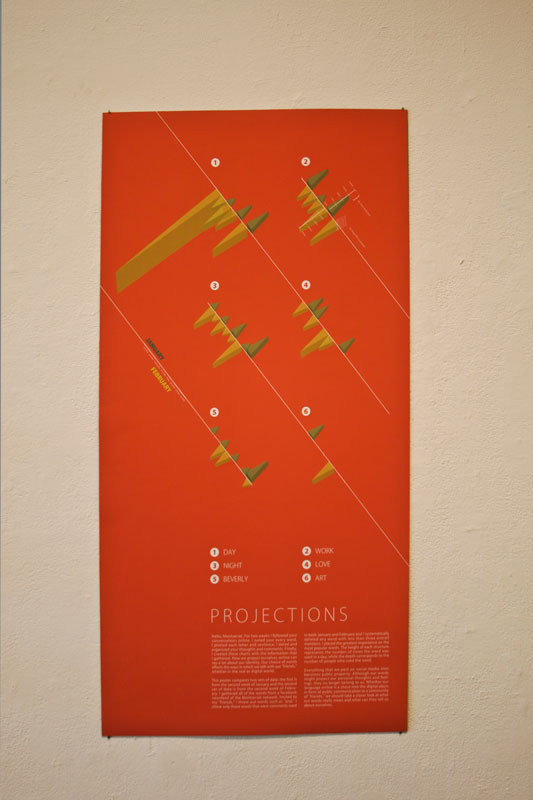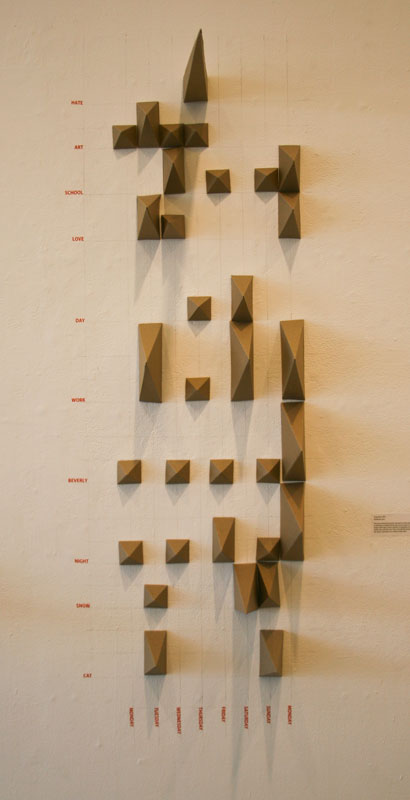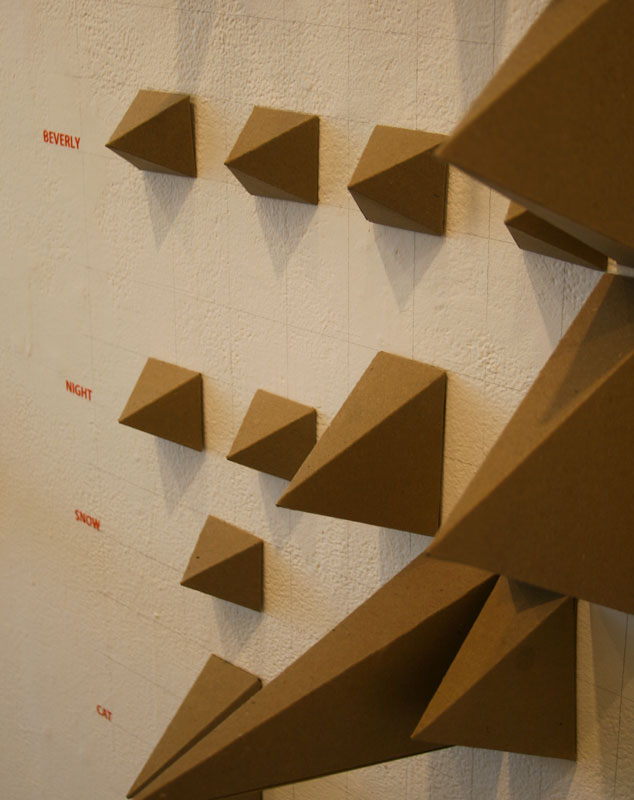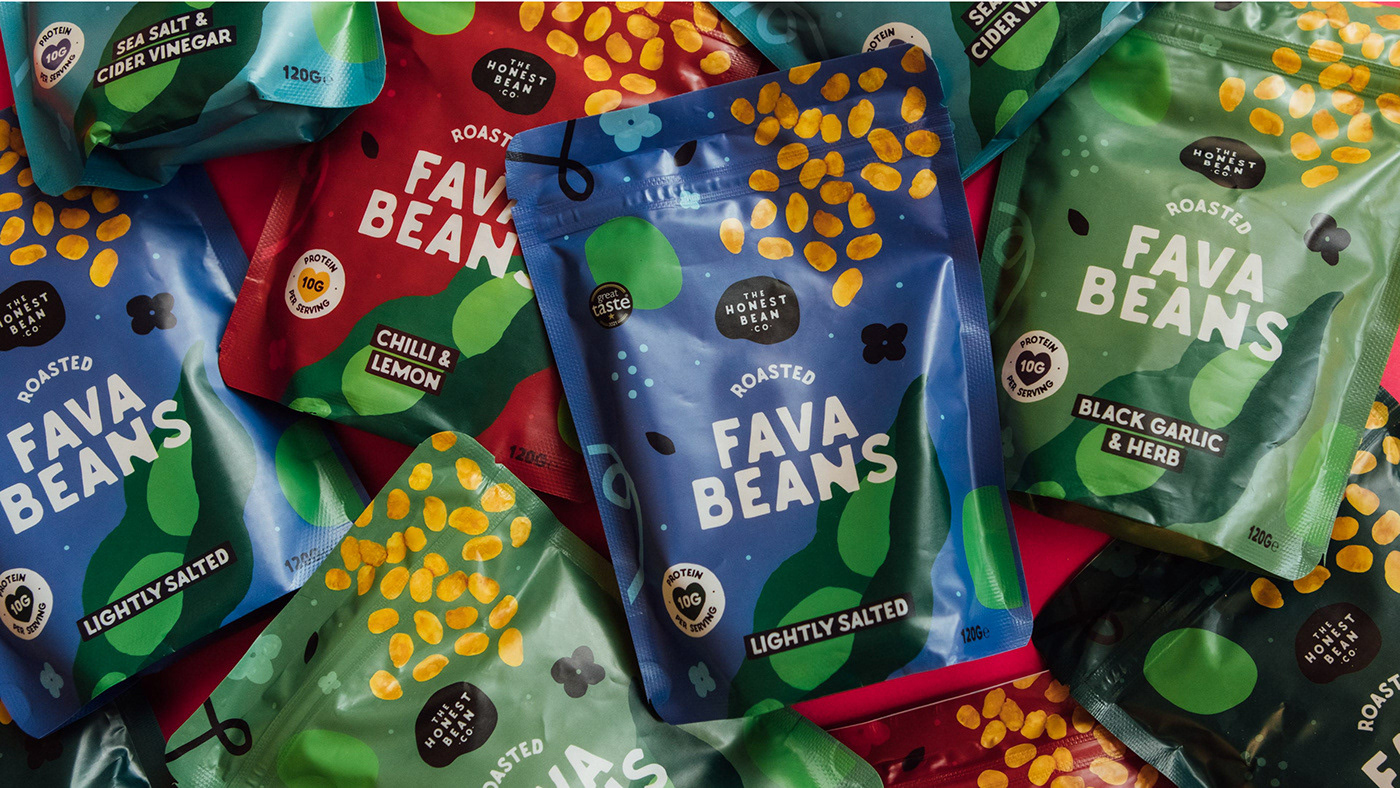Projections
How we project ourselves online can say a lot about our identity. Our choice of words effects the ways in which we talk with our friends, whether in the real or digital world. For two weeks I followed the conversations of all of my Facebook friends. I limited the data to those who were a part of the Montserrat College of Art network. I noted their every word. I plotted each letter and sentence. I dated and organized thoughts and comments. Finally, I created these charts with the information that I gathered.
The poster compares two sets of data: the first is from the second week of January and the second set of data is from the second week of February. I gathered all of the words from a Facebook newsfeed of the Montserrat network, limited to my friends. I threw out words such as “and.” I chose only those words that were commonly used in both January and February and I systematically deleted any word with less than three overall mentions. I placed the greatest importance on the most popular words. The height of each structure represents the number of times the word was used in a day, while the depth corresponds to the number of people who used the word.
Everything that we post on social media sites becomes public property. Although our words might project our personal thoughts and feelings, they no longer belong to us. Whether our language online is a shout into the digital abyss or form of public communication to a community of “friends,” we should take a closer look at what our words really mean and what can they tell us about ourselves.
The poster compares two sets of data: the first is from the second week of January and the second set of data is from the second week of February. I gathered all of the words from a Facebook newsfeed of the Montserrat network, limited to my friends. I threw out words such as “and.” I chose only those words that were commonly used in both January and February and I systematically deleted any word with less than three overall mentions. I placed the greatest importance on the most popular words. The height of each structure represents the number of times the word was used in a day, while the depth corresponds to the number of people who used the word.
Everything that we post on social media sites becomes public property. Although our words might project our personal thoughts and feelings, they no longer belong to us. Whether our language online is a shout into the digital abyss or form of public communication to a community of “friends,” we should take a closer look at what our words really mean and what can they tell us about ourselves.
The three-dimensional graph represents words posted on Facebook by Montserrat students during the second week of January. The height of the base of each pyramid corresponds to the number of people who used the word. Each inch that the structure protrudes into space represents one mention of the word.

